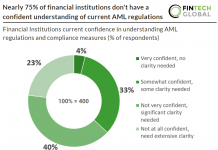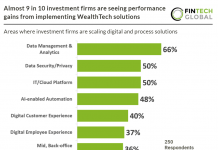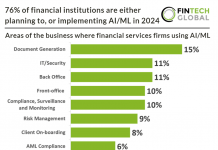Smart Communications‘ survey suggests a wide discrepancy between customer and business perceptions of customer experiences.
The benchmark report discovered that over half (51%) of the customers that were surveyed would likely choose a different company if communications did not meet their expectations, while a mammoth 81% of people polled claimed that communications are somewhat or very important to the overall customer experience.
The leading technology company, which focuses on helping businesses engage in more meaningful customer conversations, examined consumer and business leader opinions about the current state of conversations between customers and financial services, insurance and healthcare companies.
The data revealed that 73% of businesses believe their customer communications are getting better, but the stark reality is that only 29% of consumers agree with that assessment. These eye-opening results shed some light on a concerning disparity between many businesses’ perception and the sentiments expressed by the surveyed consumers.
Ultimately, these figures only serve to underline the pressure businesses are now under to improve their communications services, efficiency is king, and for the vast majority of organisation’s it is imperative that they find a solution imminently, or they risk having their customer-base poached by their more effective rivals.
Leigh Segall, President of Smart Communications, said: “When it comes to delivering on customers’ growing expectations for business-related communications, our study reveals that it’s never been more important for companies to adopt a proactive, frictionless approach. Simply delivering omnichannel communications or a static form falls short.
“Today’s winning businesses are consistently tailoring customer interactions to prioritise ease, empathy, and clarity and in doing so, forging stronger connections, loyalty and a competitive advantage.”
The study also suggested that there is increasing importance on delivering personalised, omni-channel conversations to build trust and brand loyalty with customers.
Customers are now demanding a more streamlined approach than ever with the digitisation of consumerism at an all-time high, but strikingly, the survey revealed that 53% of customers would end an interaction with a company if the way they collect information (such as completing a form) is too difficult.
The negative effect here is two-fold, as customers often switch to a higher-cost channel in light of a lack of efficiency, such as a call centre, which increases a company’s operational cost and impacts their ability to process efficiently.
This trend is only set to get worse for businesses, as according to the Smart Communications survey, millennials have the lowest level of tolerance for these poor communication experiences – only further highlighting how paramount an effective process is.
While surpassing the overall average, a remarkable 60% of millennials responded that they would likely switch companies if communications didn’t meet their expectations.
To rectify the situation, companies need to take a proactive approach to meeting customer needs, preferences, and expectations around communications and digital forms.
Cloud technologies that support a modern tech stack ensure greater agility, flexibility, and scalability. By digitising and centralising customer engagements and connecting to existing technologies, companies can build a competitive advantage through improved personalisation and efficiency that will impact customer trust and retention.
Read the full analysis of the benchmark report here.
Alternatively, Smart Communications has released two smaller reports ‘The State of Insurance Customer Experience and Conversations‘ and ‘Customer Communications in Financial Services‘.
Keep up with all the latest FinTech news here
Copyright © 2023 FinTech Global











